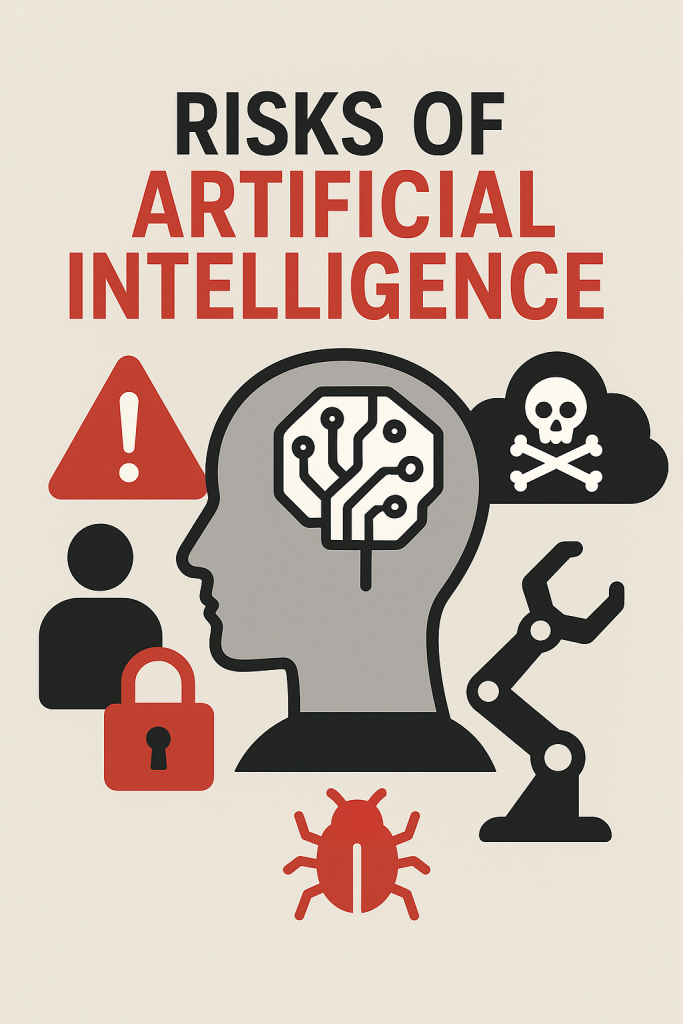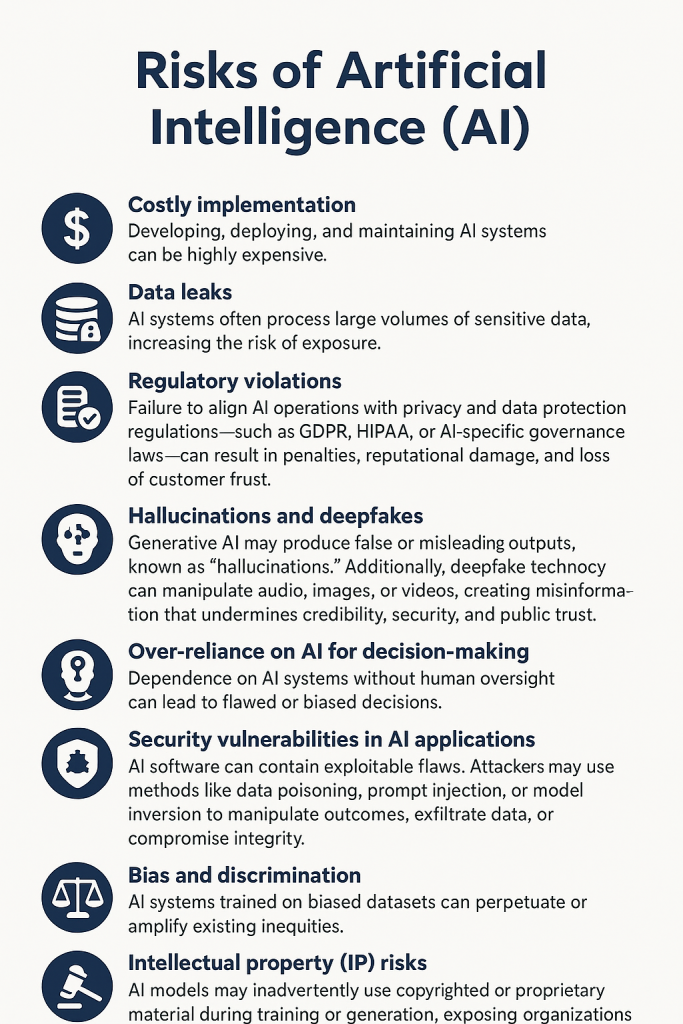
1. Costly Implementation:
Developing, deploying, and maintaining AI systems can be highly expensive. Costs include infrastructure, data storage, model training, specialized talent, and continuous monitoring to ensure accuracy and compliance. Poorly managed AI investments can lead to financial losses and limited ROI.
2. Data Leaks:
AI systems often process large volumes of sensitive data, increasing the risk of exposure. Improper data handling or insecure model training can lead to breaches involving confidential business information, personal data, or proprietary code.
3. Regulatory Violations:
Failure to align AI operations with privacy and data protection regulations—such as GDPR, HIPAA, or AI-specific governance laws—can result in penalties, reputational damage, and loss of customer trust.
4. Hallucinations and Deepfakes:
Generative AI may produce false or misleading outputs, known as “hallucinations.” Additionally, deepfake technology can manipulate audio, images, or videos, creating misinformation that undermines credibility, security, and public trust.
5. Over-Reliance on AI for Decision-Making:
Dependence on AI systems without human oversight can lead to flawed or biased decisions. Inaccurate models or insufficient contextual awareness can negatively affect business strategy, hiring, credit scoring, or security decisions.
6. Security Vulnerabilities in AI Applications:
AI software can contain exploitable flaws. Attackers may use methods like data poisoning, prompt injection, or model inversion to manipulate outcomes, exfiltrate data, or compromise integrity.
7. Bias and Discrimination:
AI systems trained on biased datasets can perpetuate or amplify existing inequities. This may result in unfair treatment, reputational harm, or non-compliance with anti-discrimination laws.
8. Intellectual Property (IP) Risks:
AI models may inadvertently use copyrighted or proprietary material during training or generation, exposing organizations to legal disputes and ethical challenges.
9. Ethical and Accountability Concerns:
Lack of transparency and explainability in AI systems can make it difficult to assign accountability when things go wrong. Ethical lapses—such as privacy invasion or surveillance misuse—can erode trust and trigger regulatory action.
10. Environmental Impact:
Training and operating large AI models consume significant computing power and energy, raising sustainability concerns and increasing an organization’s carbon footprint.

Deloitte admits to using AI in $440k report, to repay Australian govt after multiple errors spotted
Click the ISO 42001 Awareness Quiz — it will open in your browser in full-screen mode
Protect your AI systems — make compliance predictable.
Expert ISO-42001 readiness for small & mid-size orgs. Get a AI Risk vCISO-grade program without the full-time cost.
Secure Your Business. Simplify Compliance. Gain Peace of Mind
Check out our earlier posts on AI-related topics: AI topic
InfoSec services | InfoSec books | Follow our blog | DISC llc is listed on The vCISO Directory | ISO 27k Chat bot | Comprehensive vCISO Services | ISMS Services | Security Risk Assessment Services | Mergers and Acquisition Security




